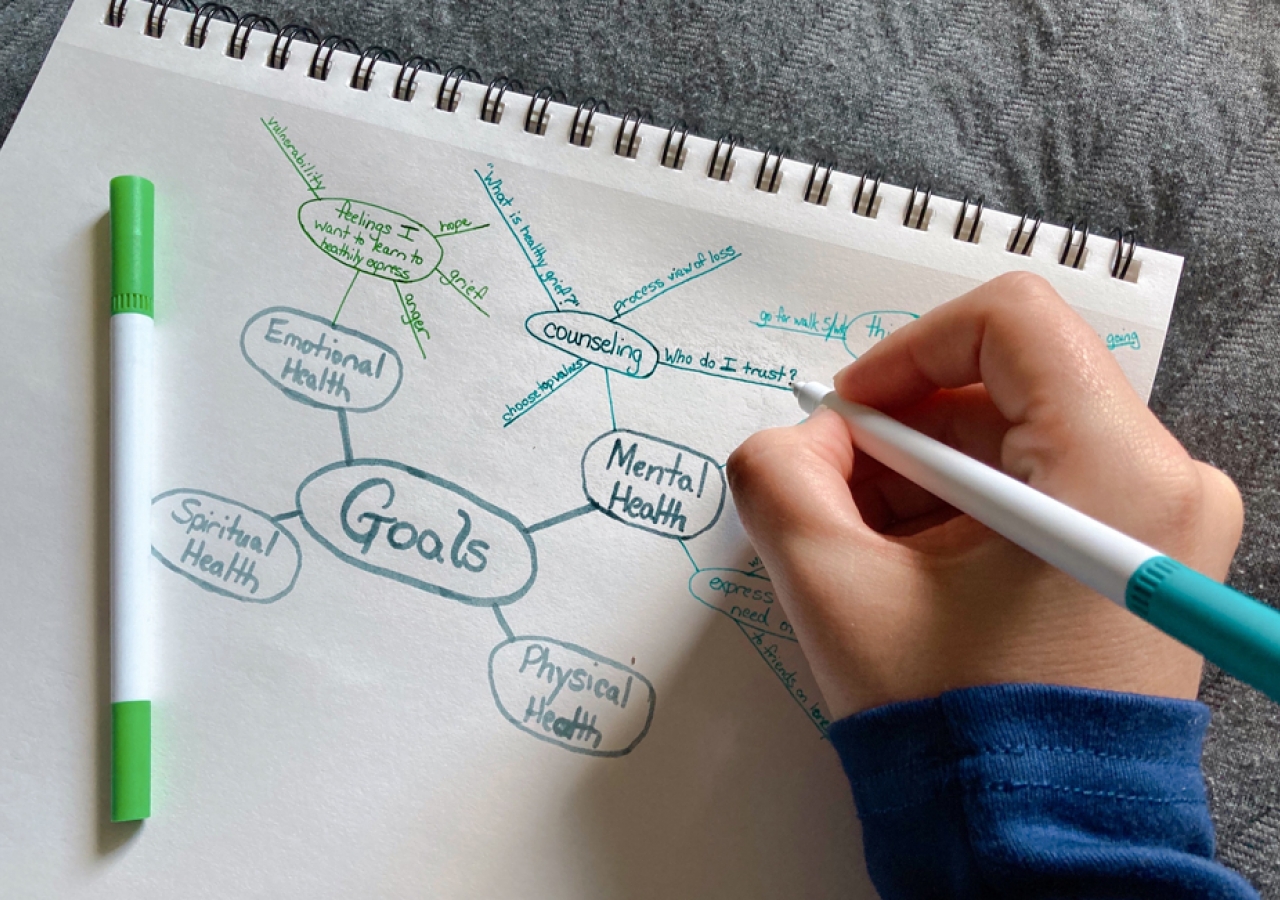Body image is mental and emotional: it’s both the mental picture that you have of your body and the way you feel about your body when you look in a mirror.
A healthy body image is not just simply tolerating what you look like or “not disliking” yourself. A healthy body image means that you truly accept and like the way you look and aren’t trying to change your body to fit the way you THINK you should look. It means recognizing the individual qualities and strengths that make you feel good about yourself beyond weight, shape or appearance and resisting the pressure to strive for the myth of the “perfect” body that you see in the media, online, in your communities.
Self-esteem is how you value and respect yourself as a person—it is the opinion that you have of yourself inside and out. Self-esteem impacts how you take care of yourself, emotionally, physically, and spiritually. Self-esteem is about your whole self, not just your body.
When you have good self-esteem, you value yourself, and you know that you deserve good care and respect—from yourself and from others. You can appreciate and celebrate your strengths and your abilities, and you don’t put yourself down if you make a mistake. Good self-esteem means that you still feel like you’re good enough even when you’re dealing with difficult feelings or situations.
Why do body image and self-esteem matter?
This is how the Domino effect works.
Body image and self-esteem go hand in hand and directly influence each other—and your feelings, thoughts, and behaviours. If you don’t like your body (or a part of your body), it’s hard to feel good about your whole self. The reverse is also true: if you don’t value yourself, it’s hard to notice the good things and give your body the respect it deserves.
Encouraging a healthier body image?
Treat your body with respect.
Eat well-balanced meals and exercise because it makes you feel good and strong, not as a way to control your body.
Notice when you judge yourself or others based on weight, shape, or size. Ask yourself if there are any other qualities you could look for when those thoughts come up. Such as their intelligence, kindness, sense of humor, their smile.
Dress in a way that makes you feel good about yourself, in clothes that fit you, that are comfortable, that emphasize your confidence. Choose happy cheerful colors. Trying to fit into something that is not your size will make you feel awkward, self-conscious, uncomfortable.
Find a short message that helps you feel good about yourself and write it on mirrors around your home to remind you to replace negative thoughts with positive thoughts.
Surround yourself with positive friends and family who recognize your uniqueness and like you just as you are.
Be aware of how you talk about your body with family and friends.
Remember that everyone has challenges with their body image at times. Nobody is perfect and comparison is the thief of joy.
Write a list of the positive benefits of the body part or feature you don’t like or struggle to accept.
Be aware that images, movies, magazine covers all tend to portray beautiful people, using techniques, colors, light, to enhance their appearance. Natural pictures are rarely perfect.
Women are more prone to using body image as a guide to judge themselves. Doing that impacts how you teach your children to judge themselves and look only for physical perfection rather than a balance of a healthy appearance, a good sound education, using integrity, respect, humility, and honesty in their dealings with others.
Self-confidence, self-esteem, and self-respect will promote self-awareness in yourself.








